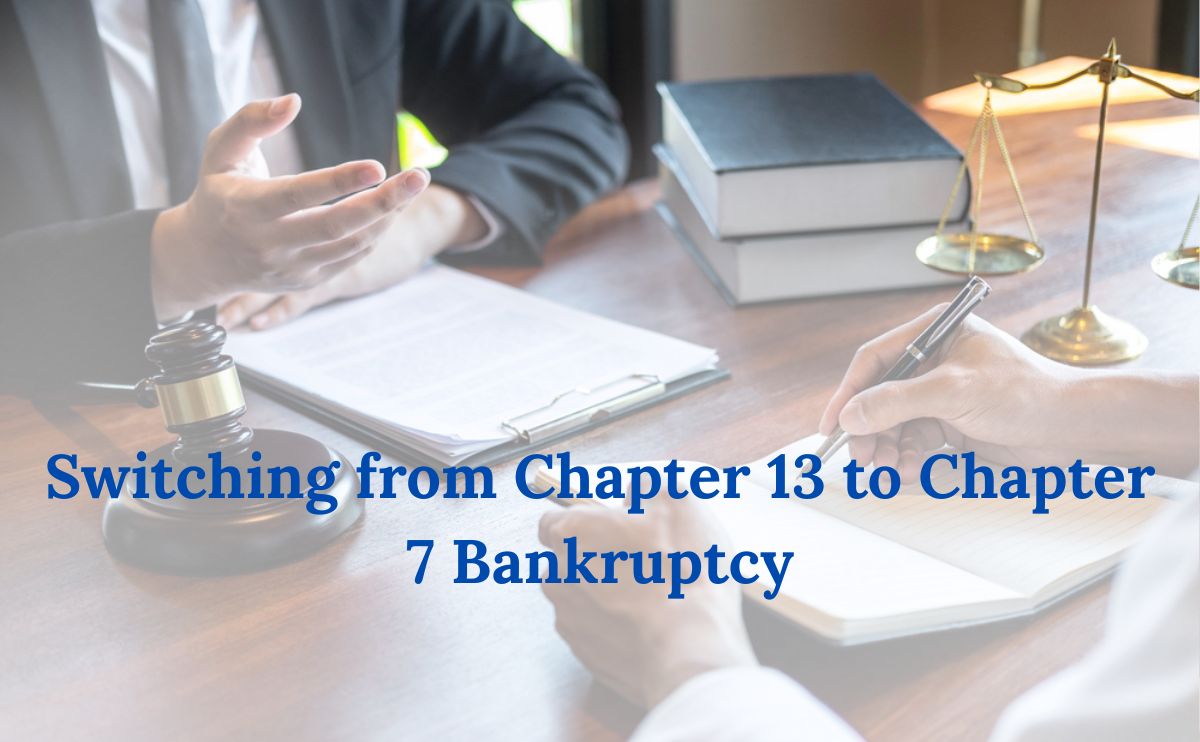Free Consultation
To discuss your financial situation and learn more about your debt relief options, give us a call at (520) 745-4429 or (480) 788-0098.
 Tucson(520) 745-4429
Tucson(520) 745-4429
 Mesa/Phoenix (480) 788-0098
Mesa/Phoenix (480) 788-0098

Money troubles can change fast. Maybe your income dropped, or an unexpected medical bill hit at the worst moment. At Yusufov Law Firm PLLC, we work with people across Tucson, Mesa, and Phoenix who need a fresh approach when their repayment plan no longer fits real life. This article walks through how, why, and when you can move from a Chapter 13 case to Chapter 7, and what that shift might mean for your debts and your belongings.
Switching chapters is usually allowed. The Bankruptcy Code says a debtor may convert “at any time” as long as the rules for the new chapter are met. That sounds simple, yet the court will still check that you pass Chapter 7 guidelines, such as the means test and discharge timing.
The specifics of your situation matter. Income level, prior filings, and the kind of debts you hold all play a part. Talking with an attorney can help you spot any roadblocks before filing the conversion paperwork.
The top motive is straightforward: the Chapter 13 payment became too high. When wages shrink or bills rise, the plan that looked fine a year ago can feel impossible today.
Common money shocks include:
Another driver is the desire to relinquish property. If keeping a house or car no longer makes sense, Chapter 7 lets you surrender it and clear the leftover balance instead of wrestling through a multi-year plan.
Conversion is not automatic. You must still qualify for a Chapter 7 discharge, and the court will review several points:
Gathering pay stubs, updated expense sheets, and any proof of recent hardship will help demonstrate that Chapter 7 is the right fit.
Most paperwork from your Chapter 13 file carries over, but a few items must be added or refreshed.
Conversion Checklist
| Step | Action Required | Why It Matters |
| Notice of Conversion | File a short form with the clerk and pay the small fee | Starts the switch officially |
| Updated Schedules I & J | Show current income and expenses | Proves a lack of funds for the Chapter 13 plan |
| Means Test Forms | Complete if your district demands it | Confirms Chapter 7 eligibility |
| Statement of Intention | Tell the court if you will keep, redeem, or surrender secured items | Guides how lenders may treat the collateral |
| 341 Meeting | Attend a new creditors’ meeting with the Chapter 7 trustee | Trustee verifies information and asks questions |
Proofs of claim already on file move over with no action from creditors. Any debts added after the original Chapter 13 filing can also be listed now.
The property you owned on the date you first filed Chapter 13 remains part of the estate. Arizona and federal exemption laws determine what you can keep. In many household cases, the homestead, a modest car, and everyday items fall within the allowed limits, so the trustee typically has nothing to sell.
If you do own non-exempt assets, the trustee can liquidate them for the benefit of unsecured creditors. On the bright side, anything you acquired after the Chapter 13 filing date, such as new wages or a replacement vehicle, is usually outside the Chapter 7 estate unless the court finds bad faith.
Once inside Chapter 7, you must pick how to deal with each secured loan. The choice depends on your budget and the item’s value.
You pay the lender a lump sum equal to the fair market value of the property. This works well when the loan balance is far higher than the item is worth, but it requires cash or new financing.
You hand the item back. The remaining deficiency balance gets wiped out with your other unsecured debts, offering a clean break.
You sign a new promise to pay and keep the collateral. Courts look at affordability, and a short hearing may be set to review the agreement.
Whatever route you choose, act fast. Lenders may ask the court to lift the automatic stay if payments are past due.
In rare instances, the court itself can shift a Chapter 13 over to Chapter 7. This tends to happen when filings contain false statements, hidden assets, or other abuse. The trustee or a creditor usually files a motion, and the judge weighs the facts before ordering the change. Honest mistakes rarely trigger this result. Additionally, in such cases, the debtor has the option of simply dismissing the Chapter 13 case if he or she acts promptly.
Our firm is committed to helping Arizonans pick the right chapter, switch when needed, and protect as much property as the law allows. If your plan payments no longer work and you want to know if conversion is the right option, reach out today. Call us at 520-745-4429 (Tucson) and 480-788-0098 (Phoenix/Mesa), or visit our contact page to set up a consultation.
To discuss your financial situation and learn more about your debt relief options, give us a call at (520) 745-4429 or (480) 788-0098.
© 2010-2026 Yusufov Law Firm PLLC. All Rights Reserved | Disclaimer | Sitemap |